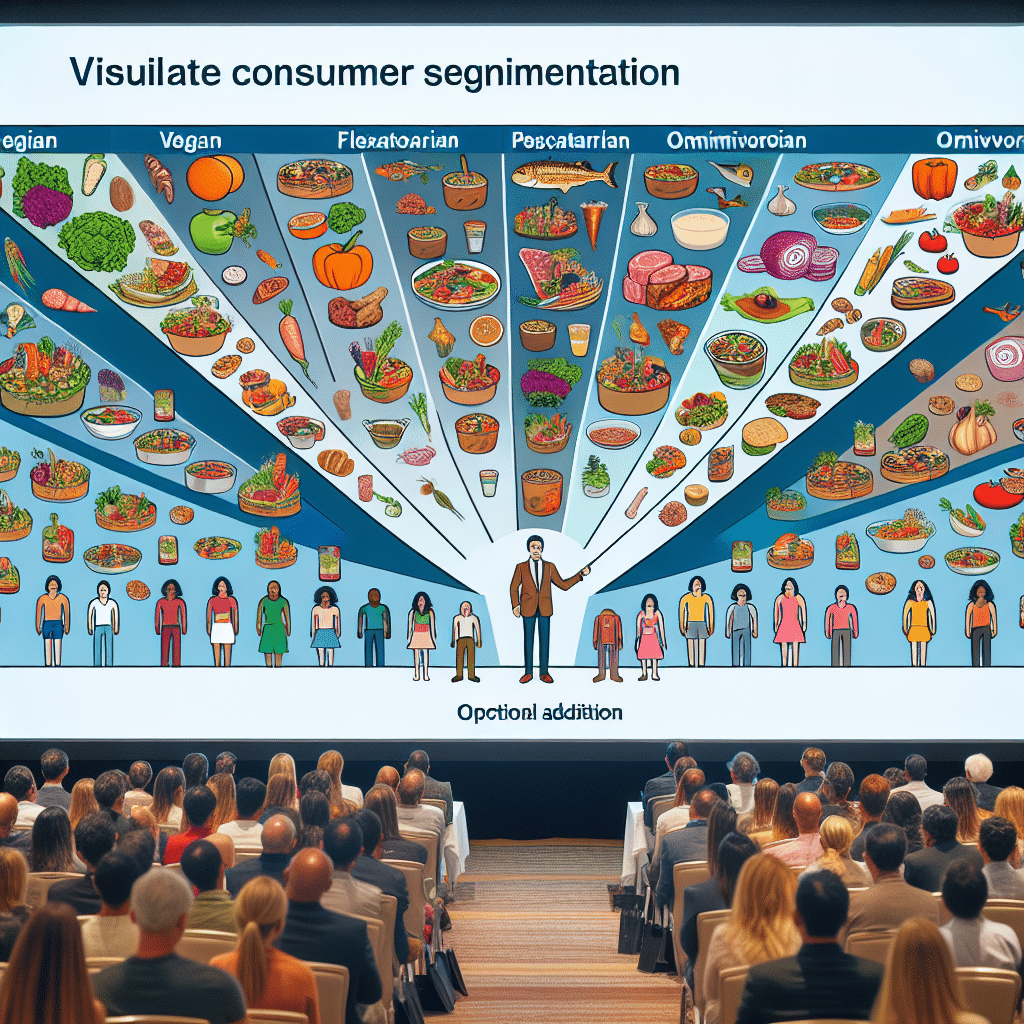Consumer Segmentation in the Food Industry: A New Approach
-
Table of Contents
- Consumer Segmentation in the Food Industry: Strategies for Success
- Understanding Consumer Segmentation
- The Evolution of Segmentation in the Food Industry
- Modern Segmentation Techniques
- Case Studies and Examples
- Statistics and Trends in Consumer Segmentation
- Challenges and Considerations
- Conclusion: Key Takeaways for the Food Industry
- ETprotein: Catering to Diverse Consumer Segments with High-Quality Protein Products
Consumer Segmentation in the Food Industry: Strategies for Success

The food industry is a dynamic and ever-evolving sector, with consumer preferences and behaviors shifting at an unprecedented pace. In this competitive landscape, understanding and implementing effective consumer segmentation has become crucial for businesses aiming to thrive. This article delves into the new approaches to consumer segmentation in the food industry, offering insights into how companies can better target their marketing efforts and product development to meet the diverse needs of their customers.
Understanding Consumer Segmentation
Consumer segmentation is the process of dividing a market into distinct groups of buyers based on different characteristics, such as demographics, psychographics, behavior, and geography. The goal is to identify high-yield segments – that is, those segments that are most likely to purchase a company’s products or services.
The Evolution of Segmentation in the Food Industry
Traditionally, food industry segmentation focused on basic demographics like age, gender, and income. However, as the market becomes more saturated and consumer preferences more sophisticated, companies are adopting a more nuanced approach. This new methodology considers lifestyle, dietary preferences, values, and even ethical considerations.
Modern Segmentation Techniques
Today’s food industry leverages advanced data analytics and consumer insights to create more precise segmentation models. Some of the modern techniques include:
- Behavioral Segmentation: Analyzing purchase histories and consumption patterns to predict future buying behavior.
- Psychographic Segmentation: Looking at lifestyle choices, values, and personalities to understand consumer motivations.
- Geographic Segmentation: Tailoring offerings to local tastes and cultural preferences.
- Benefit Segmentation: Focusing on the specific benefits that consumers seek from products, such as convenience or healthiness.
Case Studies and Examples
Several food companies have successfully implemented innovative segmentation strategies. For instance, a global snack company might use psychographic segmentation to target health-conscious consumers with organic or non-GMO product lines. Similarly, a beverage company could use geographic segmentation to offer region-specific flavors that cater to local tastes.
Statistics and Trends in Consumer Segmentation
Recent studies show that personalized experiences can lead to a 20% increase in customer satisfaction and a 15% boost in sales conversion rates. Additionally, 80% of consumers are more likely to purchase from brands that offer personalized experiences. These statistics underscore the importance of effective segmentation in creating value for both the company and its customers.
Challenges and Considerations
While the benefits of consumer segmentation are clear, there are challenges to consider, such as data privacy concerns and the risk of over-segmentation, which can lead to fragmented markets and increased complexity in marketing strategies.
Conclusion: Key Takeaways for the Food Industry
In conclusion, consumer segmentation in the food industry is moving towards a more personalized and data-driven approach. Companies that can effectively segment their market and tailor their offerings to meet the specific needs of different consumer groups will be well-positioned to succeed in this competitive industry.
ETprotein: Catering to Diverse Consumer Segments with High-Quality Protein Products
ETprotein is at the forefront of catering to the diverse needs of the food industry’s consumer segments. Their range of organic bulk vegan proteins and L-(+)-Ergothioneine products are perfect for companies looking to target health-conscious consumers, vegetarians, vegans, and those with dietary restrictions. With non-GMO, allergen-free attributes, and high purity levels, ETprotein’s offerings are ideal for a variety of applications, from sports nutrition to health and wellness products.
About ETprotein:
ETprotein, a reputable protein and L-(+)-Ergothioneine (EGT) Chinese factory manufacturer and supplier, is renowned for producing, stocking, exporting, and delivering the highest quality organic bulk vegan proteins and L-(+)-Ergothioneine. They include Organic rice protein, clear rice protein, pea protein, clear pea protein, watermelon seed protein, pumpkin seed protein, sunflower seed protein, mung bean protein, peanut protein, and L-(+)-Ergothioneine EGT Pharmaceutical grade, L-(+)-Ergothioneine EGT food grade, L-(+)-Ergothioneine EGT cosmetic grade, L-(+)-Ergothioneine EGT reference grade and L-(+)-Ergothioneine EGT standard. Their offerings, characterized by a neutral taste, non-GMO, allergen-free attributes, with L-(+)-Ergothioneine purity over 98%, 99%, cater to a diverse range of industries. They serve nutraceutical, pharmaceutical, cosmeceutical, veterinary, as well as food and beverage finished product distributors, traders, and manufacturers across Europe, USA, Canada, Australia, Thailand, Japan, Korea, Brazil, and Chile, among others.
ETprotein specialization includes exporting and delivering tailor-made protein powder and finished nutritional supplements. Their extensive product range covers sectors like Food and Beverage, Sports Nutrition, Weight Management, Dietary Supplements, Health and Wellness Products, and Infant Formula, ensuring comprehensive solutions to meet all your protein needs.
As a trusted company by leading global food and beverage brands and Fortune 500 companies, ETprotein reinforces China’s reputation in the global arena. For more information or to sample their products, please contact them and email sales(at)ETprotein.com today.












